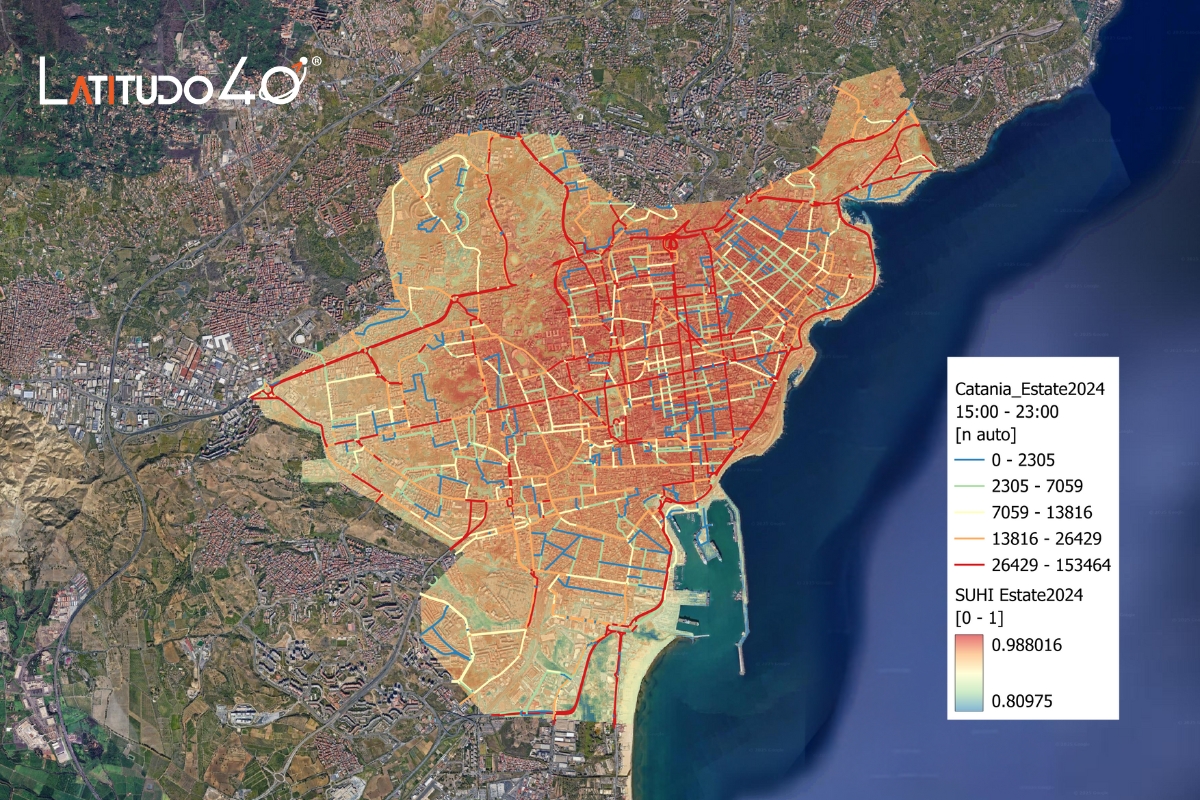
Mediterranean cities are facing complex challenges in adapting to climate change and developing resilience strategies. Making progress requires an integrated, multidisciplinary approach, combining Earth Observation (EO) monitoring, ecological design, and AI-driven modelling.
Urban EVOLUTION: a pioneering initiative
That is why UTA member Latitudo40 is embracing this goal by partnering with TeamDev and the Universities of Palermo and Perugia in Urban EVOLUTION: a pioneering initiative aiming to establish a shared scientific methodology to enhance the sustainability of Mediterranean cities through satellite-derived datasets and machine learning–powered analytics.
The project focuses on three pilot cities highly exposed to climate stressors: Naples, Catania, and Perugia. In these contexts, applied research activities are generating actionable intelligence to deploy Nature-Based Solutions (NBSs) with measurable long-term impacts on mitigating the Urban Heat Island (UHI) effect and improving air quality.
Additionally, Habitat templates are being developed to characterize the biotic and abiotic parameters of local ecosystems, to enable the selection of native or climate-adapted species and ecological infrastructures for resilient NBS implementation.
Extensive monitoring campaigns of Land Surface Temperature (LST), anthropogenic vs. biogenic CO₂ concentration, and vehicular mobility patterns are conducted to identify high-priority intervention zones. LST is being mapped using 10 m-resolution EO datasets updated at an unprecedented frequency of four times per day, while AI-based algorithms estimate CO₂ concentrations and TomTom traffic data provide fine-grained mobility insights.
You can read more about Latitudo40‘s presentation about Urban Evolution and how activities were conducted in the highlighted links.
As a result, the coordinated effort of all stakeholders is converging into two operational tools: an AS-IS monitoring platform tracking climate and environmental indicators, and a risk and planning decision-support dashboard enabling optimized spatial planning based on vulnerability indices, land use dynamics, and socio-environmental parameters.
Tangible results
At the end, the project will deliver tangible interventions, including extensive green roof systems in Naples and Catania and urban forestry schemes integrated into Perugia’s urban fabric, expected to significantly attenuate UHI intensity and reduce atmospheric pollutants.
Urban EVOLUTION demonstrates how advanced geospatial intelligence, ecological modelling, and multidisciplinary cooperation can guide evidence-based policies and climate adaptation strategies, supporting Mediterranean cities in building long-term urban resilience.
And UTA member Latitudo40 proved again that, as technology supports cities and their citizens, it is possible to shape a more sustainable future together.